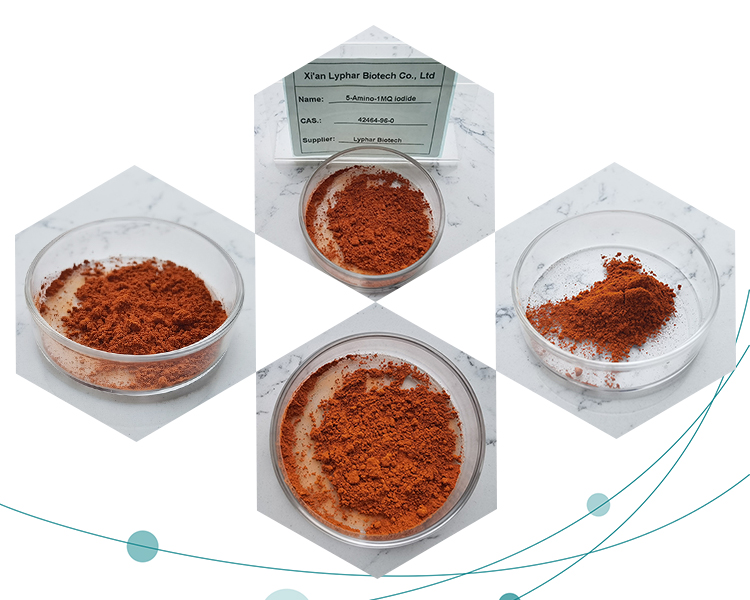5-Amino-1MQ Iodide is a derivative of 5-Amino-1MQ (5-Amino-1-Methylquinolinium), a small molecule that has been investigated for its potential therapeutic benefits.
Uses of 5-Amino-1MQ Iodide
1. Metabolic Enhancement & Weight Loss
5-Amino-1MQ is known for its ability to inhibit Nicotinamide N-methyltransferase (NNMT), an enzyme linked to fat accumulation and obesity.
By blocking Nicotinamide N-methyltransferase (NNMT), 5-Amino-1MQ may enhance energy expenditure and promote fat loss, making it a potential anti-obesity treatment.
2. Muscle Regeneration & Growth
Nicotinamide N-methyltransferase (NNMT) inhibition has been linked to improved muscle regeneration and strength recovery, particularly in aging or injured individuals.
5-Amino-1MQ Iodide might help enhance muscle growth and repair following injuries.

3. Potential Anti-Diabetic Effects
By influencing metabolic pathways, 5-Amino-1MQ Iodide may improve insulin sensitivity and glucose metabolism.
This could make it useful in managing type 2 diabetes and metabolic syndrome.
4. Anti-Aging & Longevity
Nicotinamide N-methyltransferase (NNMT) is involved in processes related to aging and cellular health.
By inhibiting this enzyme, 5-Amino-1MQ Iodide may promote cellular repair, mitochondrial function, and longevity.
5. Enhanced Physical Performance
Due to its effects on metabolism and muscle function, 5-Amino-1MQ Iodide may be explored as a performance-enhancing compound for athletes or individuals looking to improve endurance and strength.
6. Potential Use in Neuroprotection
Some studies suggest that Nicotinamide N-methyltransferase (NNMT) inhibition may have neuroprotective effects, which could be beneficial in conditions like Alzheimer’s disease or Parkinson’s disease.

7. Cardiovascular Benefits
Nicotinamide N-methyltransferase (NNMT) inhibition has been linked to improved vascular function and reduced inflammation, which may have benefits for heart health.
Current Research & Availability
While the compound is being explored in preclinical studies, more human clinical trials are needed to confirm its safety and effectiveness. It is currently being investigated as a research chemical rather than an approved drug.
Would you like information on its mechanism of action or potential side effects?
